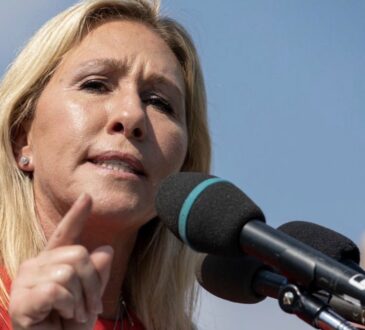RFK Jr.’s Stunning Claim About Black People And Vaccines Sparks Concern From Medical Experts

Robert F. Kennedy Jr., who is now the Secretary of Health and Human Services, is making decisions that many experts believe are putting public health at risk. He’s been spreading false claims about childhood vaccines and has removed qualified scientists from important vaccine advisory panels, replacing them with people known for pushing misinformation.
Major medical organizations like the American Medical Association and the American Academy of Pediatrics are speaking out against these actions. Some are even taking legal action because of the changes Kennedy is making to the COVID-19 vaccine guidelines.
This isn’t a new issue with Kennedy. He’s had a long history of speaking out against vaccines, and this was a major point of concern when the Senate was deciding whether to confirm him for his current role. During one of those hearings, Senator Angela Alsobrooks brought up a comment Kennedy made in 2021 where he said that Black people shouldn’t receive the same vaccine schedule as white people because he believed their immune systems were stronger.
When asked to explain, Kennedy referred to some vague studies and claimed that Black people need fewer antigens, which is not true. Experts have clearly said that vaccine schedules are based on things like age, risk of exposure, and health conditions — not race. There is no valid scientific reason to treat people differently based on race when it comes to vaccines.
What troubled many experts even more was that Kennedy didn’t back down from his earlier comment. He could have taken the chance to admit he was wrong or that he needed to learn more, but instead, he stood by what he said. For people like Joel Bervell, a medical professional who works to fight health misinformation, this refusal to correct himself is deeply troubling.
Experts say Kennedy’s comments are an example of something called “scientific racism” — the false idea that different races have different biological needs or strengths. In reality, race is not a biological category; it’s a social one. You can’t tell someone’s race just by looking at their genes. So using race to decide how people should be treated medically is both inaccurate and harmful.
Dr. Oni Blackstock, a physician and expert in health equity, pointed out that Kennedy’s comments push the false idea that Black people are biologically different in a way that justifies unequal treatment. This kind of thinking has a long, dangerous history and continues to harm people today. For example, there was once a widely used equation that wrongly assumed Black people had better kidney function, which made it harder for them to get kidney transplants. That flawed approach wasn’t fixed until 2021.
There’s also a historical example from the 1790s when it was wrongly believed that Black people were immune to yellow fever. That myth led to high death rates among Black people because they didn’t get the protection or care they needed.
The danger of these false beliefs is that they can end up being written into medical policy, affecting the kind of care people receive. When leaders promote debunked ideas, it distracts from real efforts to make health care fair and accessible for everyone. Instead of dealing with the real causes of health inequality, it spreads confusion and mistrust.
Kennedy’s inconsistent stance on vaccines — not trusting them in the past, and now suggesting that Black people need a different schedule — raises serious questions. If he doesn’t support vaccines, why is he even making these recommendations? Experts warn that this kind of messaging can lead to more mistrust, especially among Black communities that already have reason to be cautious because of past medical mistreatment.
Kennedy has also made a film in the past called *Medical Racism: The New Apartheid*, which spread false information about vaccines, especially targeting Black and other marginalized communities. Experts like Blackstock say this shows a pattern of using people’s real concerns about racism in health care to push harmful and misleading ideas.
Spreading this kind of misinformation from someone in such a powerful position only makes it harder for the public to know what to believe. Trust in health care is already fragile, especially for many communities of color. People like Bervell say we need leaders who are grounded in science and who work closely with the medical community — not those who spread doubt or stay disconnected from the realities health workers face every day.
Some experts have also noted that Kennedy’s comments sound similar to things former President Donald Trump has said. Trump has made disturbing comments about immigrants and genetics, pushing ideas about “bad genes” or racial superiority. These beliefs are based on old, dangerous ideas that have been used in the past to justify slavery, unequal treatment, and even forced sterilizations.
It’s shocking that in 2025, these outdated and racist ideas are still being shared by people in positions of power. Experts like Blackstock say people need to speak up when they hear these things. We can’t get used to this kind of talk or ignore it just because we’ve heard it before. These ideas have real consequences — they affect how people are treated, who gets care, and who gets left behind.




